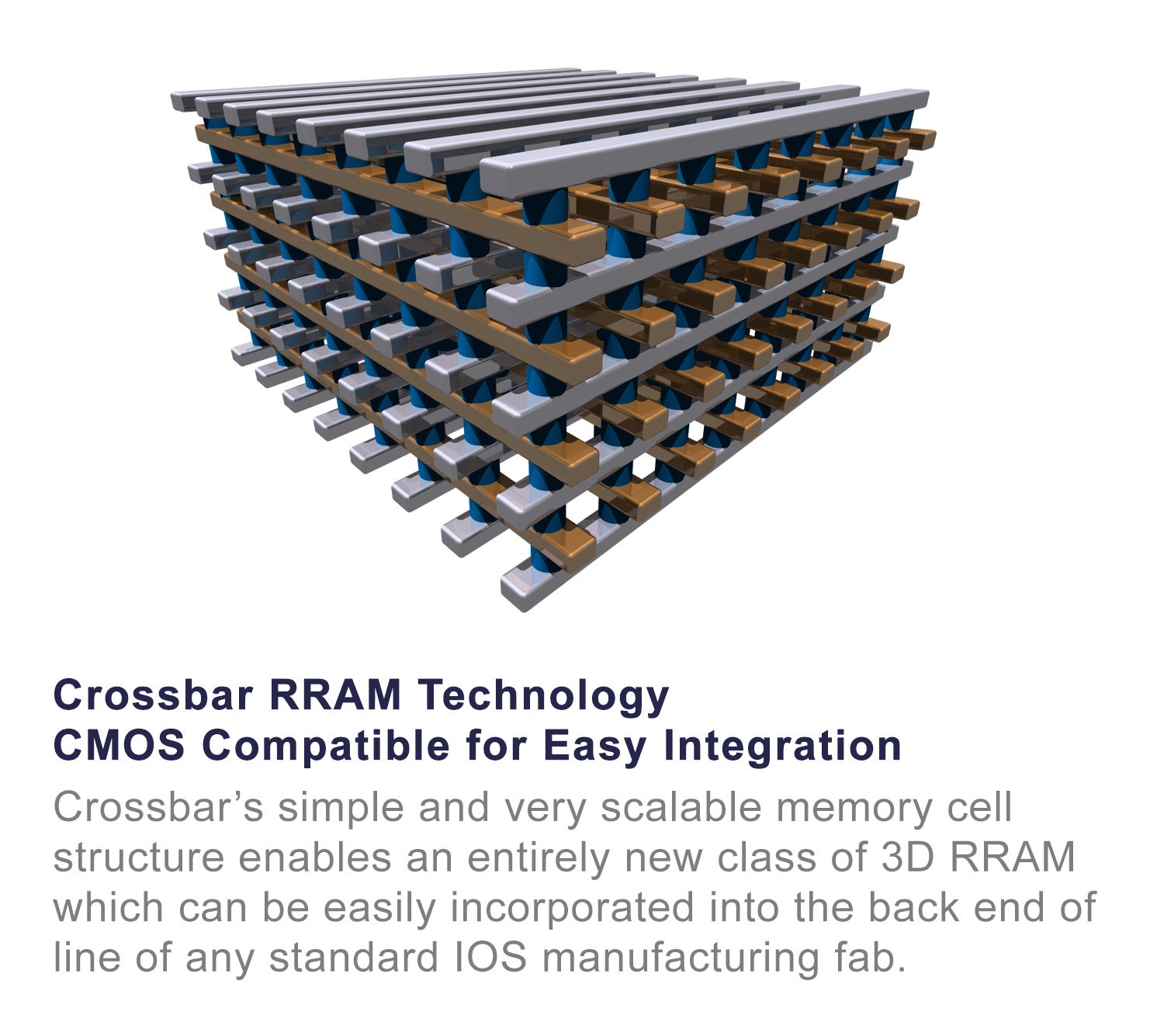'ReRAM': a computer chip that could keep your phone charged for weeks
Californian start-up Crossbar unveil new memory chip 20 times faster and using 20 times less energy than current tech
Your support helps us to tell the story
From reproductive rights to climate change to Big Tech, The Independent is on the ground when the story is developing. Whether it's investigating the financials of Elon Musk's pro-Trump PAC or producing our latest documentary, 'The A Word', which shines a light on the American women fighting for reproductive rights, we know how important it is to parse out the facts from the messaging.
At such a critical moment in US history, we need reporters on the ground. Your donation allows us to keep sending journalists to speak to both sides of the story.
The Independent is trusted by Americans across the entire political spectrum. And unlike many other quality news outlets, we choose not to lock Americans out of our reporting and analysis with paywalls. We believe quality journalism should be available to everyone, paid for by those who can afford it.
Your support makes all the difference.The world has already made its mind up about the future of technology and decided that on the whole, we quite like our mobile devices. This move has been great for a number of reasons but smartphones and tablets are still dogged by simple problems: low battery life and relatively small memory. Cloud services may help with the latter problem, streaming music and video to our devices, but that just becomes a drain on data. Plus, some of us like to own a copy of our CDs (either if that copy is just 1s and 0s).
Now, a Californian-based start-up may have the answer, with a breakthrough in a new type of memory chip known as Resistive RAM (ReRAM or RRAM for short). Capable of of storing a terabyte of data (equivalent to 250 high-definition movies) on a chip the size of a postage stamp, and using 20 times less energy than current flash memory chips, ReRAM could offer next-gen smartphones with terabytes of onboard data that go weeks without a charge.
The company is called Crossbar, and though they're not the only manufacturers working ReRAM memory (Pansonic and HP are amongst their competitors), they have announced that their models have already been succesfully manufacturered, meaning that commercialization is hopefully not too many years off.
ReRAM is a new type of non-volatile memory (meaning it stores data even when it’s not being powered) that is twenty times faster than the fastest current flash memory. Crossbars says that it can write data to its chips at 140 megabytes a second, compared to 7 megabytes a second for flash.
“Non-volatile memory is ubiquitous today, as the storage technology at the heart of the over a trillion dollar electronics market – from tablets and USB sticks to enterprise storage systems,” said chief executive officer George Minassian in an official statement.
“With our working Crossbar array, we have achieved all the major technical milestones that prove our RRAM technology is easy to manufacture and ready for commercialization.”
Crossbar’s confidence in its product has so far been matched by investors, with the company raising $25 million in venture capital. These backers include the prestigious Kleiner Perkins Caufield & Byers, who invested heavily in both Google and Amazon before the companies became multi-billion success stories.
The company plans to create its own chips and sell them to the market but will also licence its technology to other vendors. Although it will take a lot of momentum to replace the current flash memory standards, the chips would offer significant increases in memory – putting terabytes of storage on smartphones and tablets.
The new ReRAM technology could also prove useful for the internet of things and wearable technology, as it uses twenty times less power and has ten times the endurance of current NAND flash chips. Despite this though, Crossbar are currently only working on small chip implementations (microcontrollers and the like) and the possibility of finding ReRAM in your mobile probably won't arrive before 2016.

Join our commenting forum
Join thought-provoking conversations, follow other Independent readers and see their replies
Comments